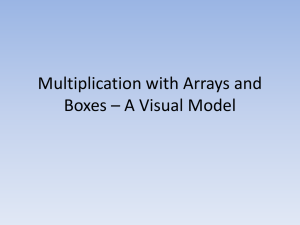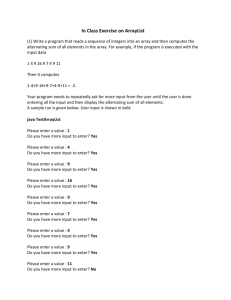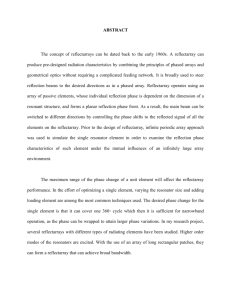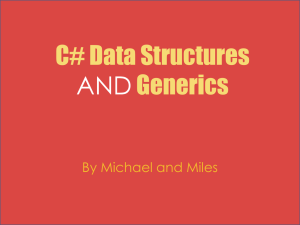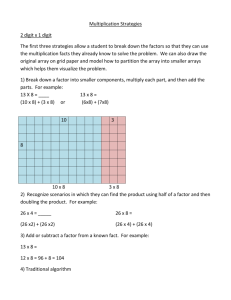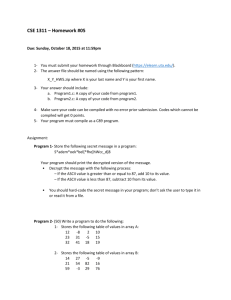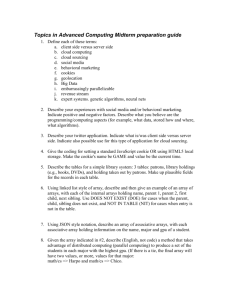Proposal for Unpacked Array and Structure Expressions
advertisement
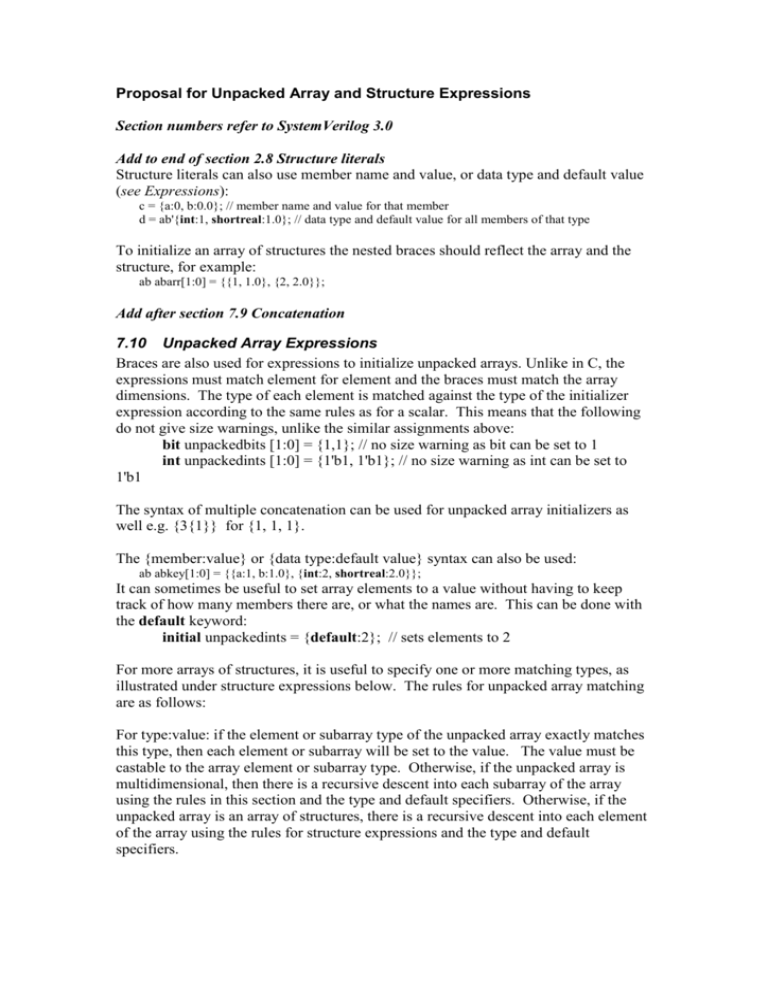
Proposal for Unpacked Array and Structure Expressions
Section numbers refer to SystemVerilog 3.0
Add to end of section 2.8 Structure literals
Structure literals can also use member name and value, or data type and default value
(see Expressions):
c = {a:0, b:0.0}; // member name and value for that member
d = ab'{int:1, shortreal:1.0}; // data type and default value for all members of that type
To initialize an array of structures the nested braces should reflect the array and the
structure, for example:
ab abarr[1:0] = {{1, 1.0}, {2, 2.0}};
Add after section 7.9 Concatenation
7.10 Unpacked Array Expressions
Braces are also used for expressions to initialize unpacked arrays. Unlike in C, the
expressions must match element for element and the braces must match the array
dimensions. The type of each element is matched against the type of the initializer
expression according to the same rules as for a scalar. This means that the following
do not give size warnings, unlike the similar assignments above:
bit unpackedbits [1:0] = {1,1}; // no size warning as bit can be set to 1
int unpackedints [1:0] = {1'b1, 1'b1}; // no size warning as int can be set to
1'b1
The syntax of multiple concatenation can be used for unpacked array initializers as
well e.g. {3{1}} for {1, 1, 1}.
The {member:value} or {data type:default value} syntax can also be used:
ab abkey[1:0] = {{a:1, b:1.0}, {int:2, shortreal:2.0}};
It can sometimes be useful to set array elements to a value without having to keep
track of how many members there are, or what the names are. This can be done with
the default keyword:
initial unpackedints = {default:2}; // sets elements to 2
For more arrays of structures, it is useful to specify one or more matching types, as
illustrated under structure expressions below. The rules for unpacked array matching
are as follows:
For type:value: if the element or subarray type of the unpacked array exactly matches
this type, then each element or subarray will be set to the value. The value must be
castable to the array element or subarray type. Otherwise, if the unpacked array is
multidimensional, then there is a recursive descent into each subarray of the array
using the rules in this section and the type and default specifiers. Otherwise, if the
unpacked array is an array of structures, there is a recursive descent into each element
of the array using the rules for structure expressions and the type and default
specifiers.
For default:value this specifies the default value to use for each element of an
unpacked array that has not been covered by the earlier rules in this section. The value
must be castable to the array element type.
7.11 Structure Expressions
A structure expression (packed or unpacked) can be built from member expressions
using braces and commas, with the members in declaration order. It can also be built
with the names of the members
module mod1;
typedef struct {
int x;
int y;
} st;
st s1;
int k = 1;
initial begin
#1 s1 = {1, 2+k}; // by position
#1 $display( s1.x, s1.y);
#1 s1 = {x:2, y:3+k); // by name
#1 $display( s1);
#1 $finish;
end
endmodule
It can sometimes be useful to set structure members to a value without having to keep
track of how many members there are, or what the names are. This can be done with
the default keyword:
initial s1 = {default:2}; // sets x and y to 2
Note that the default keyword applies to members in nested structures or elements in
unpacked arrays in structures. In fact it descends the nesting to a built-in type or a
packed array of them.
struct {
int A;
struct {
int B, C;
}BC1, BC2;
}
ABC = {A:1, BC1:{B:2, C:3}, BC2:{B:4,C:5}};
DEF = {default:10};
To deal with the problem of members of different types, a type can be used as the key.
This overrides the default for members of that type:
typedef struct {
logic[7:0] a;
bit b;
bit [31:0] c;
string s;
} sa;
sa s2;
initial s2 = {bit[31:0]:1, default:0, string:""}; // set all to 0 except the array of
bits to 1 and string to ""
Similarly an individual member can be set to override the general default and the type
default:
initial #10 s1 = {default:'1, s = ""}; // set all to 1 except s to ""
The matching rules are as follows:
A member:value: specifies an explicit value for a named member of the structure.
The named member must be at the top level of the structure - a member with the same
name in some level of substructure will NOT be set. The value must be castable to
the member type, otherwise an error is generated.
The type:value specifies an explicit value for a field in the structure which exactly
matches the type and has not been set by a fieldname specifier above. If the same
key type is mentioned more than once, the LAST value is used.
The default:value applies to members that are not matched by either member name or
type and are not either structures or unpacked arrays. The value must be castable to
the member type, otherwise an error is generated. For unmatched structure members,
the type and default specifiers are applied recursively according to the rules in this
section to each member of the substructure. For unmatched unpacked array members,
the type and default specifiers are applied to the array according to the rules for
unpacked arrays.
Every member must be covered by one of these rules.
